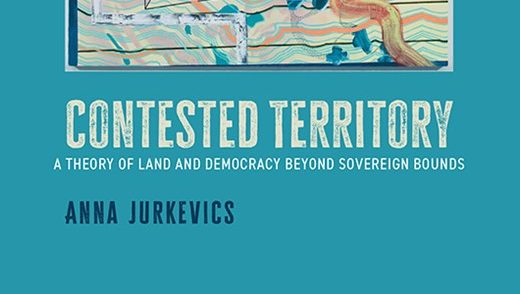What do I do with my Political Science or International Relations degree?
It is a question that our faculty get asked all the time. It is a question that is more frequent as students graduate into an uncertain and changing employment landscape.
UBC Political Science Department Head Dr. Richard Price’s new course is designed to provide practically useful answers to that question. Working alongside colleagues from the Centre for Student Involvement and Careers to help design the course, he decided to answer the question by providing an opportunity for Political Science and International Relations alumni to share their career experiences with our students.


Dr. Richard Price
The Professional Skills in Political Science course provided students with sessions and assignments curated by professionals working in a number of professions including provincial and federal government; the private sector including digital marketing and consulting; a non-profit community organization; and an Indigenous organization.
“This was a course unparalleled in its efforts to assist students with life post-graduation,” said UBC Political Science student Gen Varelas. “It was refreshing to find a course that would make the graduation experience less daunting as one looks into stepping in the career world.”
Varelas said she was particularly inspired by guest speaker Jessica McDonald (Poli Sci 1990), whose professional career including being Deputy Minister and Head of the BC Public Service; Chair, President, and CEO of Canada Post; and President and CEO of BC Hydro.
“It was refreshing to find a course that would make the graduation experience less daunting as one looks into stepping in the career world.”
“It was inspiring as a woman to see such a strong female who is dominating in the working sphere,” Varelas said. “Her guest lecture was powerful and instilled deep life lessons that I will continue to carry with me.”
Yoojung Lee, another Political Science student who took the class, said she was looking for an opportunity to take effectively translate soft skills in a variety of workplace contexts. Lee said she found the session taught by Political Science alumna Kaleigh Heard especially helpful.
“Kaleigh has effectively managed to expand her intellectual horizons through a combination of work and academic experience, her story gave me a chance to more carefully reflect on my career trajectories,” Lee said. “While my career plans have not drastically shifted after taking this course, I believe that I am in a better position now to make a more informed decision about my prospects and articulate my skills in a variety of career contexts.”


Nika Moeini was one of several UBC alumni to share their experiences in Dr. Price's new class
In March and April, alumni Henry Han (Poli Sci 2002) and Greg Eidsness (Poli Sci 2007) led students through a public policy case study challenge. The students had to respond to the challenge of regulating Deep Fakes (AI-generated fake videos).
“It’s a major policy challenge that requires the students to consider issues such as consumer protection, freedom of expression, corporate influence, and national security, among others. The purpose was to have the students understand the policy-making process in a practical rather than theoretical way,” Eidsness said.
Eidsness graduated in 2007 and is now Managing Director of the Singapore Trade and Investment Office with the Government of Saskatchewan. He was also Director of International Business Development at Trade & Invest British Columbia.
“Transitioning from an Arts degree can be challenging as students are unsure of their value to an employer and lack knowledge about what jobs are even available to them. I had the good fortune of participating in the Arts Co-op program but often wonder what I would have done without those professional experiences during my studies,” Eidsness said.
How to articulate and translate skills learned in the classroom into a variety of career paths is not always obvious to students, nor are students always obviously prepared for a variety of different careers in the eyes of employers. Writing research papers for professors is one thing, but writing press releases for politicians, briefing memos for government officials, proposals for Indigenous communities, or designing social media campaigns for non-profit organizations are quite another.
“Transitioning from an Arts degree can be challenging as students are unsure of their value to an employer and lack knowledge about what jobs are even available to them.”
“By embedding this content firmly within a disciplinary context, Dr. Price is really at the cutting edge of effective career learning to support student agency during their degrees and as they transition out of their degrees,” Executive Director for Work-Integrated Education and Career Initiatives Julie Walchli said. “The AMS in its recent submission to UBC’s Board of Governors called for more career learning embedded within disciplines and this course is an example of how that can be done in a meaningful and impactful way.”
“This course touches a lot on the basics (How to present myself to future recruiters, employers, etc.), which may seem simple, but not when you have had little experience in this arena,” Varelas said. “Even going over what to include in your LinkedIn profile, your CV, cover letter, resume, had proven to be beyond useful even as a currently apply for work.”
Dr. Richard Price’s Professional Skills in Political Science will be offered again during Term Two of our upcoming year.
If you’re an Alumni interested in participating in future classes, email us here.
Learn more about the course on our app.


